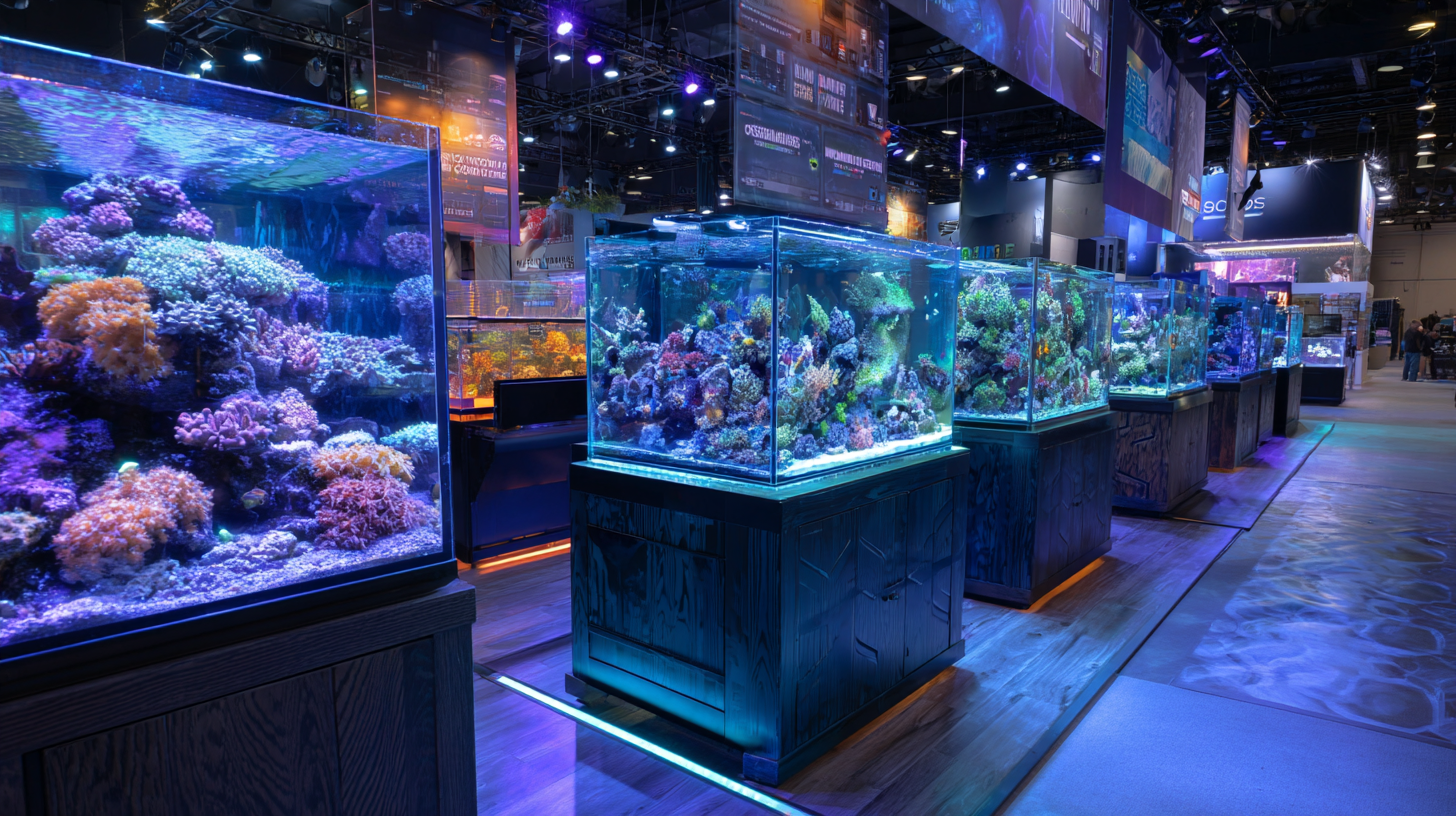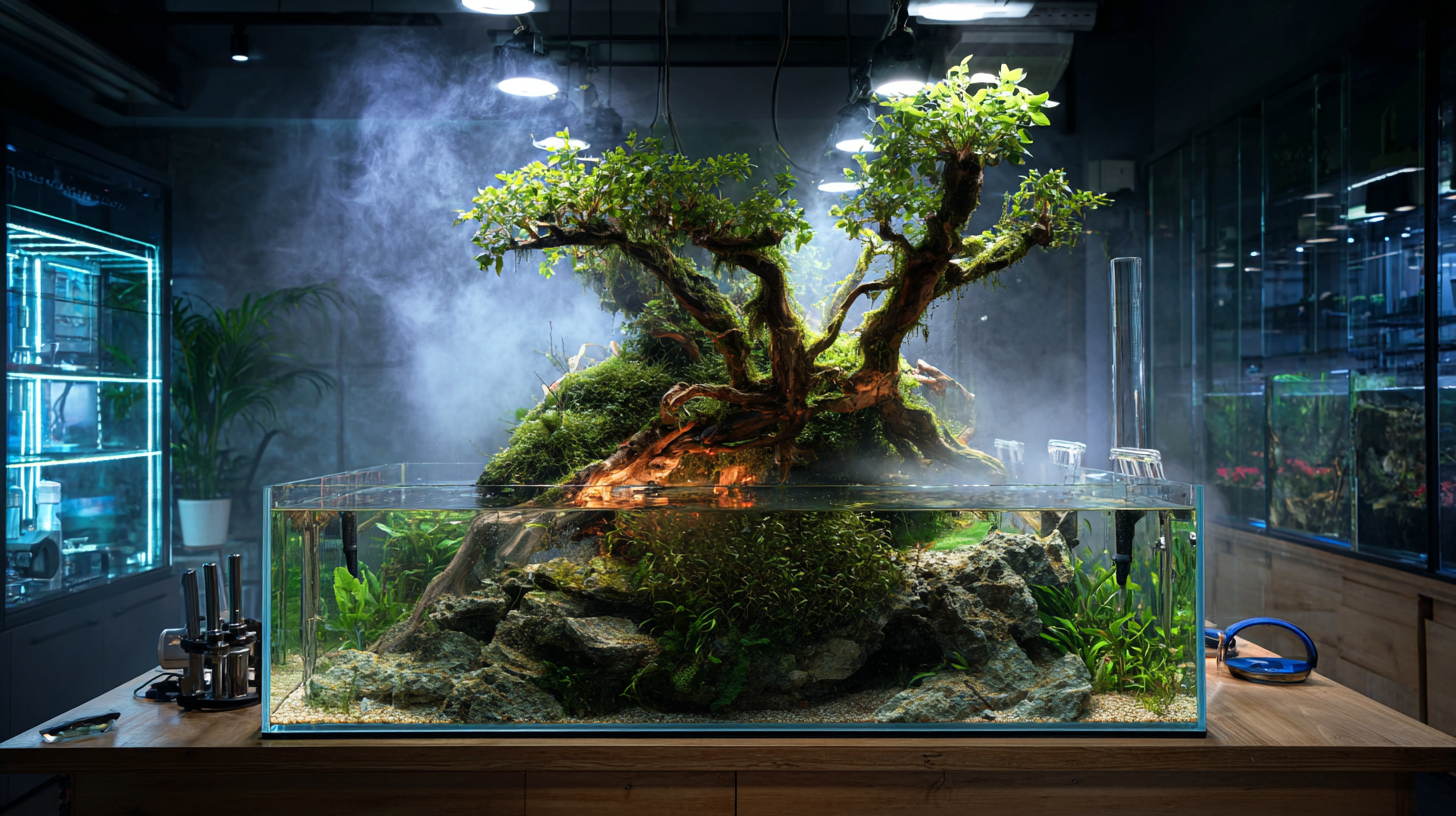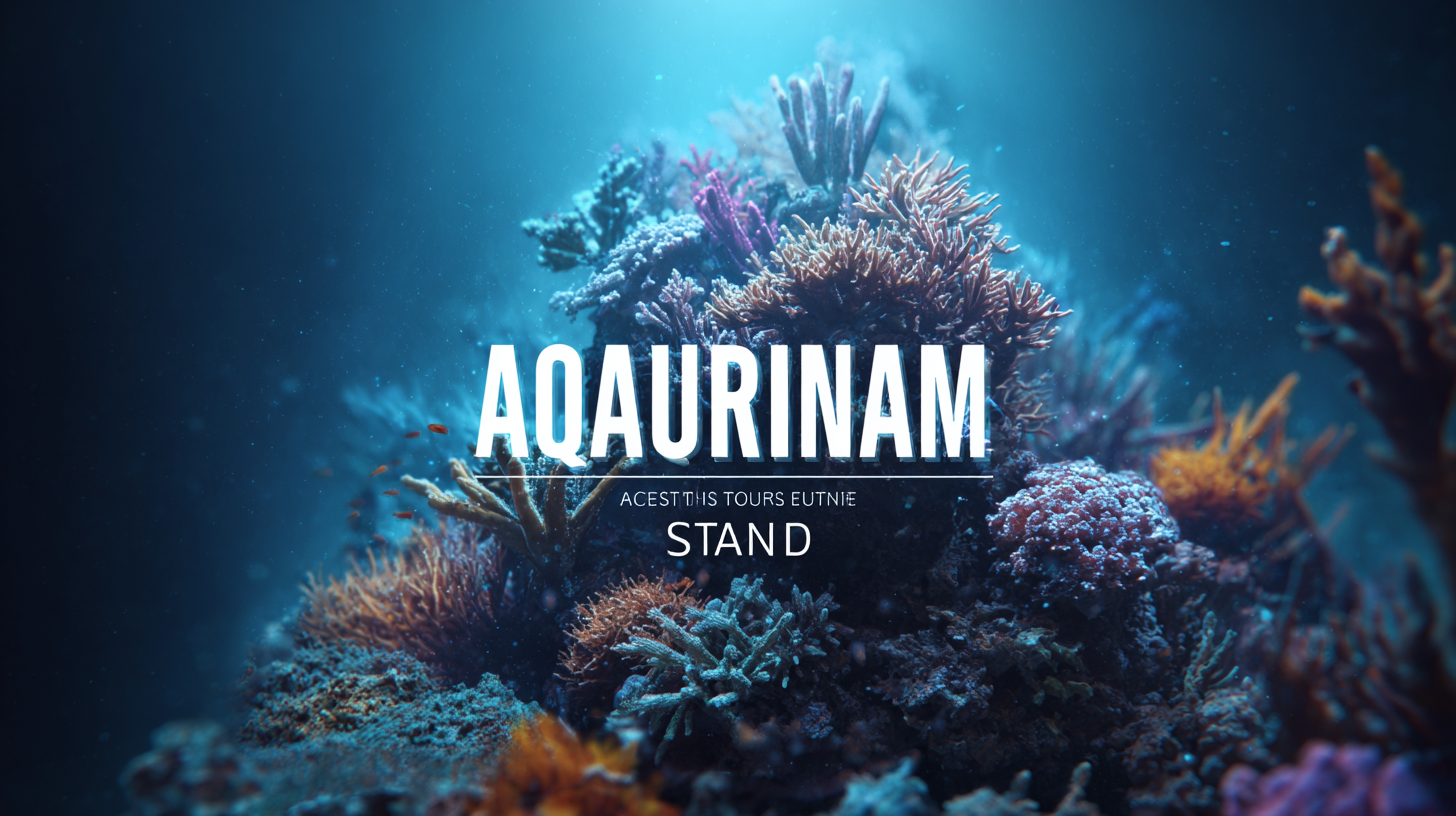Navigating the Future of Aquarium Stands in 2025 with Essential Setup Tips
As we look towards 2025, the aquarium industry is poised for significant growth, projected to reach a market value of over $6 billion by 2025, according to a recent industry report. With this upward trend, the importance of the right aquarium stand becomes more critical than ever. An aquarium stand not only enhances the aesthetic appeal of your aquatic setup but also plays a vital role in ensuring the stability and safety of your aquatic environment.

With innovations in materials and design, today's stands are engineered to support various tank sizes while accommodating advanced filtration and lighting systems that are trending in the hobby. This blog will provide essential setup tips and insights into navigating the evolving landscape of aquarium stands, helping enthusiasts create a thriving underwater ecosystem that meets both functional and aesthetic needs.
Understanding the Impact of Material Choices on Aquarium Stand Durability in 2025
When selecting aquarium stands in 2025, understanding the impact of material choices is crucial for ensuring durability and stability. Generally, aquarium stands are constructed from various materials, including wood, metal, and engineered composites. Each material has its own advantages and disadvantages, greatly affecting the stand's lifespan. For instance, solid wood offers a classic aesthetic but can be susceptible to water damage if not properly sealed. On the other hand, metal stands provide impressive strength and resistance to moisture, making them an ideal choice for larger aquariums.

Additionally, the rise of engineered materials, such as high-density polyethylene (HDPE), is becoming more popular due to their resistance to corrosion and ease of maintenance. These synthetic options not only offer durability but are also lightweight, making them easier to move and set up. As we navigate the evolving trends in aquarium setups, considering material choices ensures that enthusiasts can invest in stands that will support their aquatic environments securely for years to come, allowing for a thriving aquatic ecosystem.
Top Trends in Aquarium Stand Design: A Look Ahead to 2025's Innovations
As we approach 2025, the aquarium stand industry is poised for significant transformations driven by innovative designs and sustainability trends. According to a recent report from IBISWorld, the global aquarium accessories market, including stands, is estimated to reach $1.5 billion by 2025, demonstrating a compound annual growth rate of 4.2%. This growth illustrates a booming interest in home aquariums, prompting manufacturers to rethink and enhance stand design to meet modern aesthetic and functional needs.
One of the most notable trends is the incorporation of eco-friendly materials. A survey by the Aquatic Retailers Association found that over 60% of aquarium enthusiasts prioritize sustainability when purchasing new equipment. Manufacturers are responding by using recycled materials and biodegradable options. Additionally, the implementation of smart technology within stands is on the rise, with features such as built-in filtration systems and adjustable lighting gaining popularity. As our understanding of aquatic ecosystems evolves, these innovations not only enhance tank aesthetics but also contribute to healthier environments for aquatic life.
Essential Measurements for Aquarium Stands: Ensuring Stability and Safety for Your Setup
When setting up an aquarium stand, ensuring proper measurements is crucial for stability and safety. According to industry reports, approximately 25% of aquarium failures are attributed to insufficient support structures. This highlights the importance of selecting a stand that can adequately support the weight of the tank, water, and additional equipment. For instance, a 55-gallon tank can weigh over 600 pounds when fully set up, necessitating careful consideration of the stand's dimensions, material strength, and load-bearing capacity.
In terms of essential measurements, experts recommend that the stand should be at least 1-2 inches wider and deeper than the base of the aquarium for optimal stability. Moreover, the height of the stand should be considered to ensure that the user can comfortably maintain and observe the aquarium. It’s advisable to have a stand height that allows for both accessibility and aesthetic appeal. To achieve a safe and secure aquarium setup, adhering to these essential measurements can prevent potential accidents and enhance the longevity of your aquatic environment.
Eco-Friendly Aquarium Stand Options: Meeting Consumer Demands by 2025
 As we move toward 2025, the demand for eco-friendly aquarium stand options is reshaping the aquarist market. Consumers are increasingly conscious of their environmental impact and seek sustainable materials that are not only aesthetically pleasing but also functional. Recycled wood, bamboo, and other sustainable resources are becoming popular choices among manufacturers and DIY enthusiasts alike. These materials not only reduce the carbon footprint but also offer unique visual appeal that can elevate the overall look of any aquarium setup.
As we move toward 2025, the demand for eco-friendly aquarium stand options is reshaping the aquarist market. Consumers are increasingly conscious of their environmental impact and seek sustainable materials that are not only aesthetically pleasing but also functional. Recycled wood, bamboo, and other sustainable resources are becoming popular choices among manufacturers and DIY enthusiasts alike. These materials not only reduce the carbon footprint but also offer unique visual appeal that can elevate the overall look of any aquarium setup.
In addition to material sustainability, innovation in design is crucial. Modular and multi-functional aquarium stands are gaining traction, providing versatility for various tank sizes and styles. These stands can adapt to changing needs, whether that means accommodating a larger tank or integrating storage for essential supplies. Furthermore, as technology advances, we can expect more stands equipped with integrated lighting and filtration systems, creating a seamless aquarium environment while keeping sustainability at the forefront. This evolution reflects a broader trend in consumer preferences, emphasizing the importance of both ecological responsibility and the joy of aquarium keeping.
Maintenance Tips for Prolonging the Life of Your Aquarium Stand: A 2025 Guide
When investing in an aquarium stand, it's essential to consider not just its aesthetic appeal but also its longevity. Proper maintenance plays a crucial role in prolonging the life of your aquarium stand. Start by regularly inspecting the stand for any signs of wear and tear, particularly if it is made of wood or composite materials. Water spills can warp or damage surfaces, so it's vital to address any leaks immediately and ensure that water does not accumulate around the base.
Cleaning is equally important; use a damp cloth and a mild detergent to wipe down the stand, avoiding harsh chemicals that could degrade the finish. Additionally, consider applying a protective sealant once a year to prevent moisture damage and enhance durability. If your aquarium stand has adjustable shelves or fittings, check them periodically for sturdiness and make any necessary adjustments to maintain stability. By prioritizing these maintenance tips in 2025, you can keep your aquarium stand looking great while ensuring it remains a solid support for your aquatic habitat.
Copyright © 2021 Payless Pet Products - All Rights Reserved.